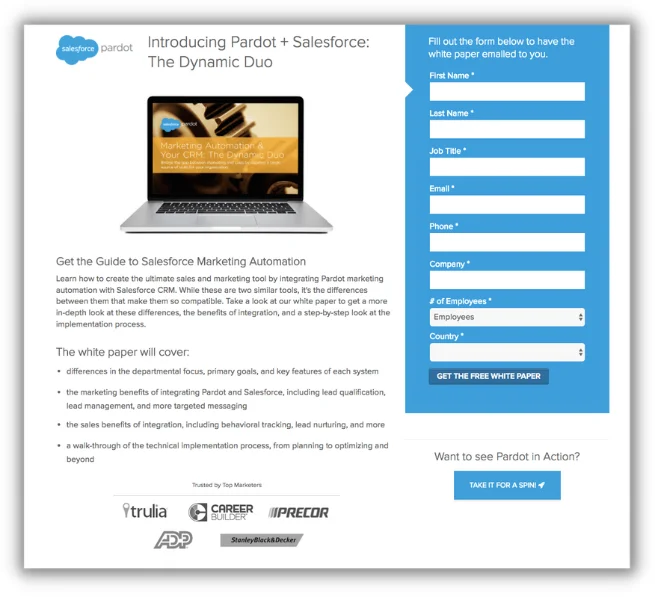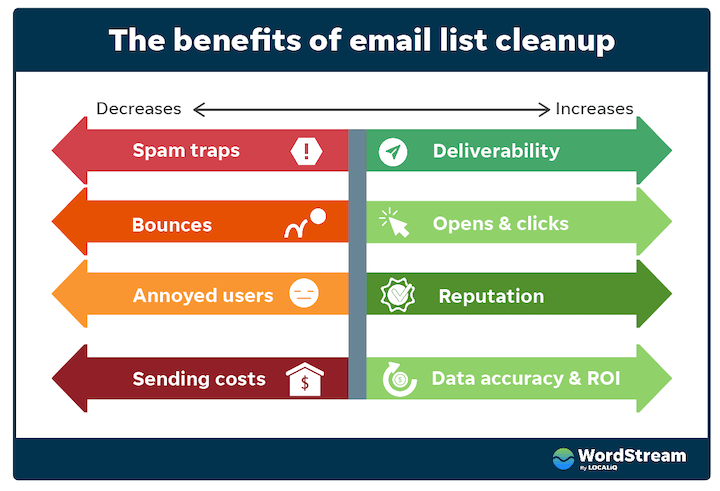To ensure that you are getting the most accurate data that is compliant with the law and meets your marketing objectives It is important to take into consideration some key aspects. These are the most important elements to be considered: 1. Quality of data and accuracy
The source of the data: Make sure that the source of email lists gathers data from reliable sources like professional directories and databases on healthcare. The email addresses should be current and pertinent.
Verification Method: Check that the email address has been verified recently. Providers need to have a process in place for validating email addresses and eliminating inactive or invalid addresses. Good quality lists are low in bounce rates, and also result in better deliverability.
Segmentation, Customization and Filtering Choose lists that permit you to filter according to subspecialties and geographic place of residence (e.g. clinical pathology or pathology for forensics) and the amount of time of professional experience, or affiliation with hospitals. The ability to customize your website allows you to target the right audience more effectively.
2. Conformity to Legal Regulations
Data Privacy Regulations: Ensure that your email list is compliant with laws regarding data privacy, such as the General Data Protection Regulation (GDPR) in Europe as well as the California Consumer Privacy Act (CCPA) in the U.S., and any other laws that are relevant. Pathologist data must be collected and used in a legally compliant manner, respecting individual privacy rights.
CANSPAM Act: If your company is located in the U.S., or you're seeking U.S. pathologists via email, make sure the list is compliant with the CANSPAM Act which regulates commercial emails. The penalties for non-compliance are steep.
Verify that emails collected on the list are that have valid opt-in permission. This will ensure that pathologists are willing to receive marketing materials, reducing any spam complaints.
3. Provider Reputation
Credibility of the Provider: Choose a company with a proven track record in sending accurate and compliant email lists. For a better idea of the quality of service, look up reviews, testimonials and references from healthcare marketers.
Transparency: The provider should be transparent about their data gathering methods and how frequently the data is up-to-date. Avoid providers who are vague in regards to the origins of their email list.
Customer Support: Look for an online provider that has a strong customer support should you require assistance in completing the list or have technical difficulties.
4. Cost as well as Return on Investment (ROI).
Pricing Models There are a variety of pricing models offered, such as pay-per - contact, flat-fee for a list, or a subscription. Make sure your marketing budget will work with the cost and calculate the ROI (return on investment).
Refund Policy. Some service providers offer refunds for emails that don't conform to their standards or are invalid. Make sure you check the company's refund or replacement policies.
Value for Money - Compare the price of a list versus its quality, level of segmentation and other services (e.g. campaign management or CRM Integration). It is possible that the cheapest list may not be the most effective when poor deliverability results.
5. Ownership and use of data
Be clear about the usage and licensing rights. Are you buying the list solely to use it once or will you own the data in order to run ongoing campaigns? Some providers only offer one-time licenses, whereas others provide unlimited usage, which is more suitable for ongoing outreach.
Exclusive vs. shared lists: Determine whether the list is solely yours or shared with others. Exclusive lists are more likely to yield better engagement since the contacts aren't bombarded by multiple sources.
6. Data Integration and Format
Compatibility: See whether the email lists can easily integrate with your CRM or marketing email tools. The data should be in a standard format such as CSV or Excel which can be easily imported.
Data Segmentation: Determine how easy it will be to segment and sort the list once it is integrated. Effective segmentation can lead to customized emails that get better response and open rates.
7. Ethical Questions
Relevance of the message you send Pathologists are highly trained experts. Make sure your message, product or service is appropriate to their needs. Unrelated messages could harm your reputation and lead to complaints about spam.
Spam reports may be caused by excessive emailing or unsolicited content. Plan your campaigns carefully, using the list ethically to protect your sender's reputation.
The article's conclusion is:
A pathologist email database can be a powerful tool for advertising when you buy it in the right way. Prioritize quality of the data, legal compliance, and the reputation of your provider to maximize the potential of your outreach. Make sure that your list is customized to meet your specific needs and always adhere to data privacy regulations and ethical practices in marketing. Think about these aspects to design an effective and efficient marketing campaign that targets pathologists. Check out the top pathologist email list for more guide.

What Are The Factors I Should Consider Before Purchasing An Oncologist's List?
It is important to consider these elements prior to purchasing an email list for your oncologist. They will assist you in making sure that your list is targeted, high-quality and legally in compliance. Here are some key factors to take into consideration: 1. Data Quality and Accuracy
Source of Data: Ensure that the data is coming from reliable and trustworthy sources like medical directories, professional associations or databases of healthcare. Beware of lists that are sourced from unreliable or unverified sources. They could contain outdated or incorrect information.
Verification Process: The list service must have a solid verification procedure to ensure that the emails are valid, valid, and active. The list provider should be regularly updating and cleanse the list in order to get rid of any invalid or duplicate contact.
Segmentation - A quality email list for oncologists should include segments. Being able to filter the list by subspecialties (e.g., pediatric oncology, surgical oncology, hematology-oncology), geographic location, years of experience, or institution allows for more targeted outreach, increasing the likelihood of engagement.
2. Conformity to Legal Regulations
Data Privacy Regulations â Ensure that your email list is compliant with lawful privacy requirements for data, like the General Data Protection Regulations in Europe or the California Consumer Privacy Acts in the U.S. Email addresses must be collected, processed and stored in accordance with the law.
Compliance with CANSPAM Act - For campaigns in the United States make sure whether the mailing list is compliant with the CANSPAM Act. The CANSPAM Act regulates commercial emails. It is crucial to include an explicit opt-out button in every email. Also, ensure that the subject lines of your emails are accurate and do not fool recipients. Infractions can result in fines and may damage your reputation.
Consent to Opt-In: Confirm that all email addresses were acquired through consent. Oncologists should have agreed to receive emails from marketing companies in order to comply with privacy regulations and reduce the possibility of spam complaints or legal concerns.
3. Provider Reputation
Reputable Provider - It's essential to buy your list from a expert with a strong reputation. You can verify the credibility of a provider by examining their past as well as their reviews, testimonials and case studies. Established companies tend to provide more accurate and legally reliable information.
Transparency: The provider should be clear about where the data is obtained and when it is updated, and what verification methods are used. Lack of transparency is a big red flag that may indicate poor quality data.
Customer Support - Choose a company that offers responsive assistance in the event that you need help integrating and segmenting your business or complying with the regulations.
4. Cost and Return on Investment
Learn about the pricing structure, including whether it's based on the number of contact or whether it is a one-time charge or subscription. Consider how the pricing model is aligned with your budget for marketing and the expected ROI.
Refund or Replacement Policy: A reliable provider will offer a refund or replacement policy in the event of invalid or obsolete email addresses that are not valid or outdated. To ensure your investment is protected make sure you read the conditions and terms before you make a purchase.
Value for money: Don't solely be focused on cost. While a less expensive mailing list may be appealing, it can ultimately hurt your campaign if it causes low engagement or poor delivery. Prioritize importance and make sure that the list is complete and up-to-date information.
5. Data Usage and Ownership
If you're unsure, ask if it is only for one-time use or if ownership will allow for the use of the list for a long time. While single-use lists can be cheaper when you have several campaigns planned, purchasing the list could provide flexibility and longer-term benefits.
Exclusive vs. Shared Lists. Find out if the list you have is exclusive or available to several buyers. Exclusive lists are more valuable since they reduce audience exhaustion, which leads to greater engagement.
6. Data Integration and Format
CRM Compatibility. Check that you can integrate the list into your CRM or emailing program. The list should be presented in a format that is easy to integrate, like CSV.
Ease of Segmentation The list should be easy to maintain and segment in your CRM. If you are able to quickly filter using criteria such as specialties in oncology or geographical place, it can increase the effectiveness of your campaigns.
7. Ethical Concerns
Relevance: Oncologists operate in highly specific fields and are often on busy schedules. Make sure your message is related to their work or interest. For example, medical equipment, continuing education or developments in the field of pharmaceuticals. Irrelevant emails may result in a negative brand reputation and low engagement.
Beware of Spam. Avoid sending too many emails or send unwelcome email messages. These could result in spam complaints. To keep your readers active, send regular emails.
Conclusion
When purchasing an oncologist mailing list, pay attention to data accuracy, legal conformity, and the credibility of the vendor. Be sure that the list has been segmented and is tailored to your audience. When you consider these aspects, it's possible to design an efficient and dependable strategy for outreach that maximizes the engagement of your audience while also delivering impressive results. Have a look at the recommended oncologist email list for site advice.
